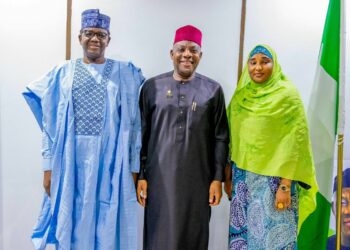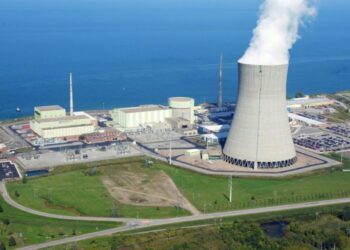A Professor of Finance and Capital market, Uche Uwaleke, has stressed the need for the government to unlock the huge potential of long-term financing inherent in the capital market and ensure borrowings tied to infrastructure bonds.
Uwaleke stated this at the 2023 conference of the Capital Market Correspondents Association of Nigeria (CAMCAN) held in Lagos at the weekend.
He said, this became necessary for the nation’s economy to grow steadily at 16 per cent per annum over the next six years to attain the projected $1 trillion economy by 2030.
Uwaleke stated that, with the nation’s infrastructure investment need which had continued to widen, and government debt profile, which is substantially high, mobilising long-term financing through the capital market and deploying domestic market borrowings into infrastructure bonds had become critical to achieving the target.
Speaking on the theme: ‘Leveraging Capital Market in Financing The National Development Plan’, Uwaleke said: “despite the creation of the development plan designed to tackle the nation’s huge infrastructure gap, Nigeria is still rated one of the lowest stocks of infrastructure to GDP among emerging economies.
“To narrow the gap, the government through the creation of the National Integrated Infrastructure Master Plan, had proposed that Nigeria needed to invest $3 trillion in infrastructure over the next 30 years and $100 billion annually. This translates to a yearly investment of over N42 trillion which constitutes more than the size of the total annual budgets of the federal and sub-national governments.
“Financing this huge infrastructure gap presents a formidable challenge to the government given Nigeria’s low revenue-to-GDP ratio of less than 10 per cent making inevitable the capital market route.”
However, Uwaleke pointed out that the nation’s capital market is currently beset with myriads of challenges, which had continued to constrain its full development despite giant strides achieved in the last two decades.
He noted that the extent to which the Nigerian capital market could facilitate economic development is a function of its level of development.
The deputy director, Securities & Exchange Commission (SEC) Lagos Zonal office, Mr John Briggs, urged the government to create infrastructure financing instruments that would facilitate easy servicing of obligations.
According to him, we have encouraged a lot of infrastructure funds like sukuk, and green bonds and we are even talking about blue bonds to develop the market. The capital market has created the conducive environment to ensure a transparent and dynamic market which would continue to attract investment.
Meanwhile, the chairman of CAMCAN, Mrs. Chinyere Joel-Nwokeoma, said the yearly workshop was part of the Association’s contributions to the development of the nation’s economy, saying, the forum had consistently served as an avenue for regulators, operators, and company executives to brainstorm on issues that affect the market and economy.
She said, the theme of this year’s conference was predicated on the compelling need to properly execute the National Development Plan, with the capital market as the hub of medium- and long-term sources of finance.




